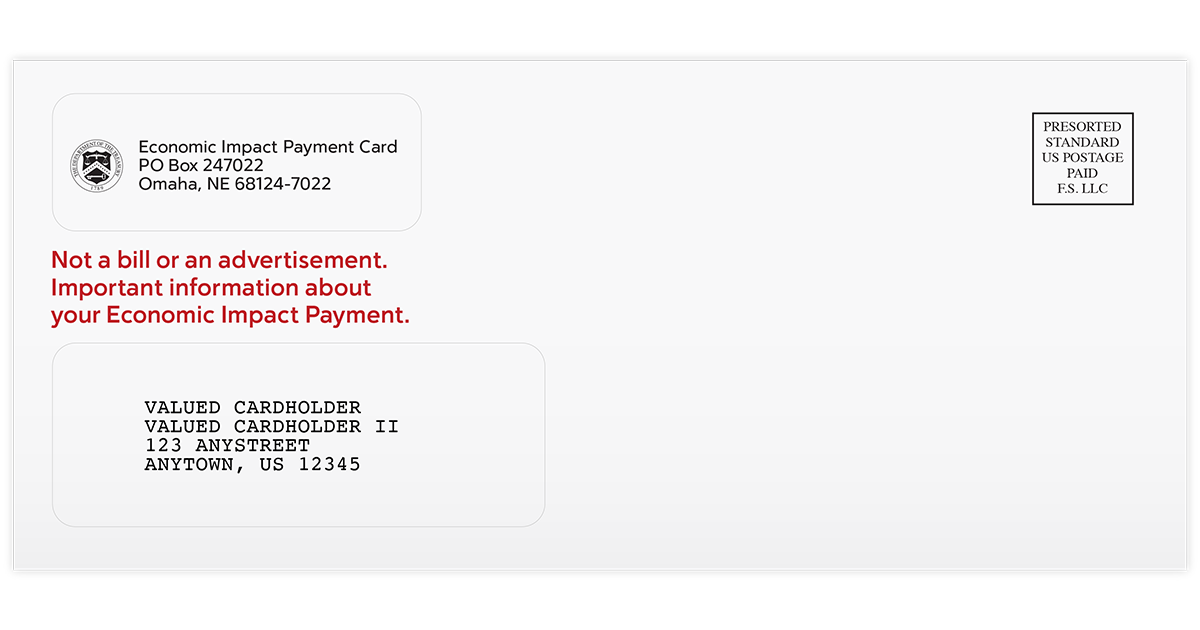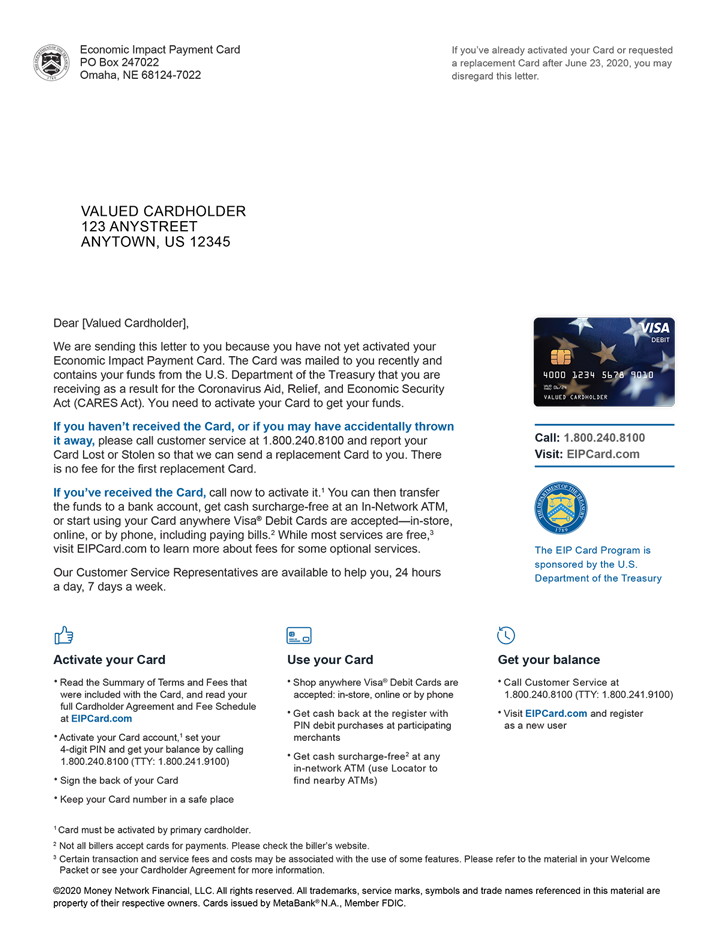Did you get an Economic Impact Payment VISA debit card in the mail from the U.S. Department of the Treasury? If you did, you might get a letter from Treasury this week, reminding you to activate your card.
Treasury’s letter gives you instructions on how to activate the card. Once you do that, you can get cash or use it anywhere that accepts VISA debit cards. Or, you can also transfer the money from your EIP debit card to your bank account. This is especially helpful if you can’t or don’t want to visit an ATM.
Did you throw away the card by mistake, or don’t recall getting one? No worries. Your letter from Treasury will tell you how to request a replacement card, which will include calling a 24-hour customer service line at 1.800.240.8100. It’s free to replace your card.
So that you know what to look out for in the mail, here’s what the envelope from Treasury will look like:
And here’s what the letter from Treasury will look like:
And, because this blog is all about reminders, here’s one more. Unless you’ve asked for assistance, know that the government will never, ever call, text, email, or send you a link to click to activate your card or get your money. If someone does—or asks for your Social Security or debit card number—it’s a scam. Report it to the FTC at ftc.gov/complaint.
